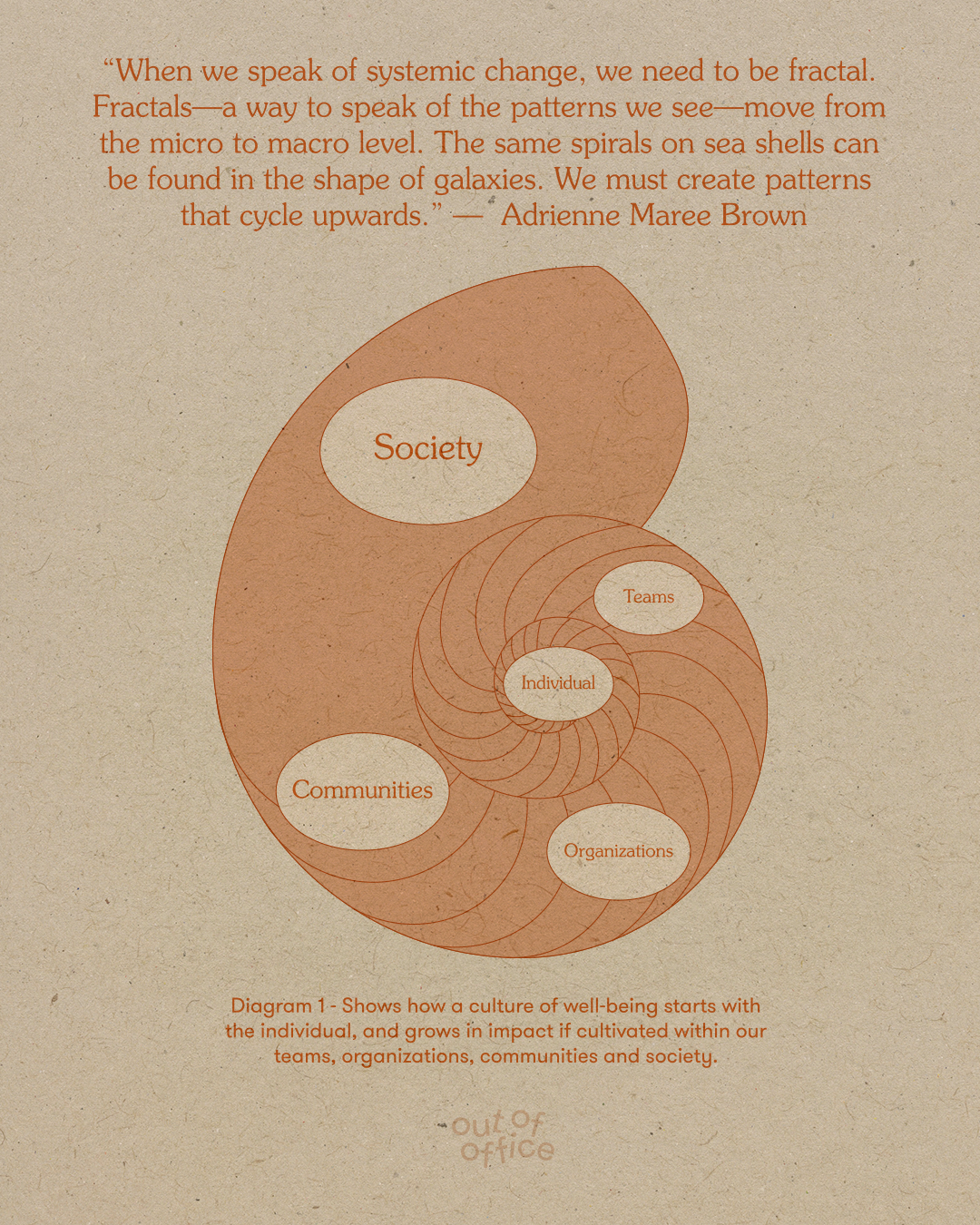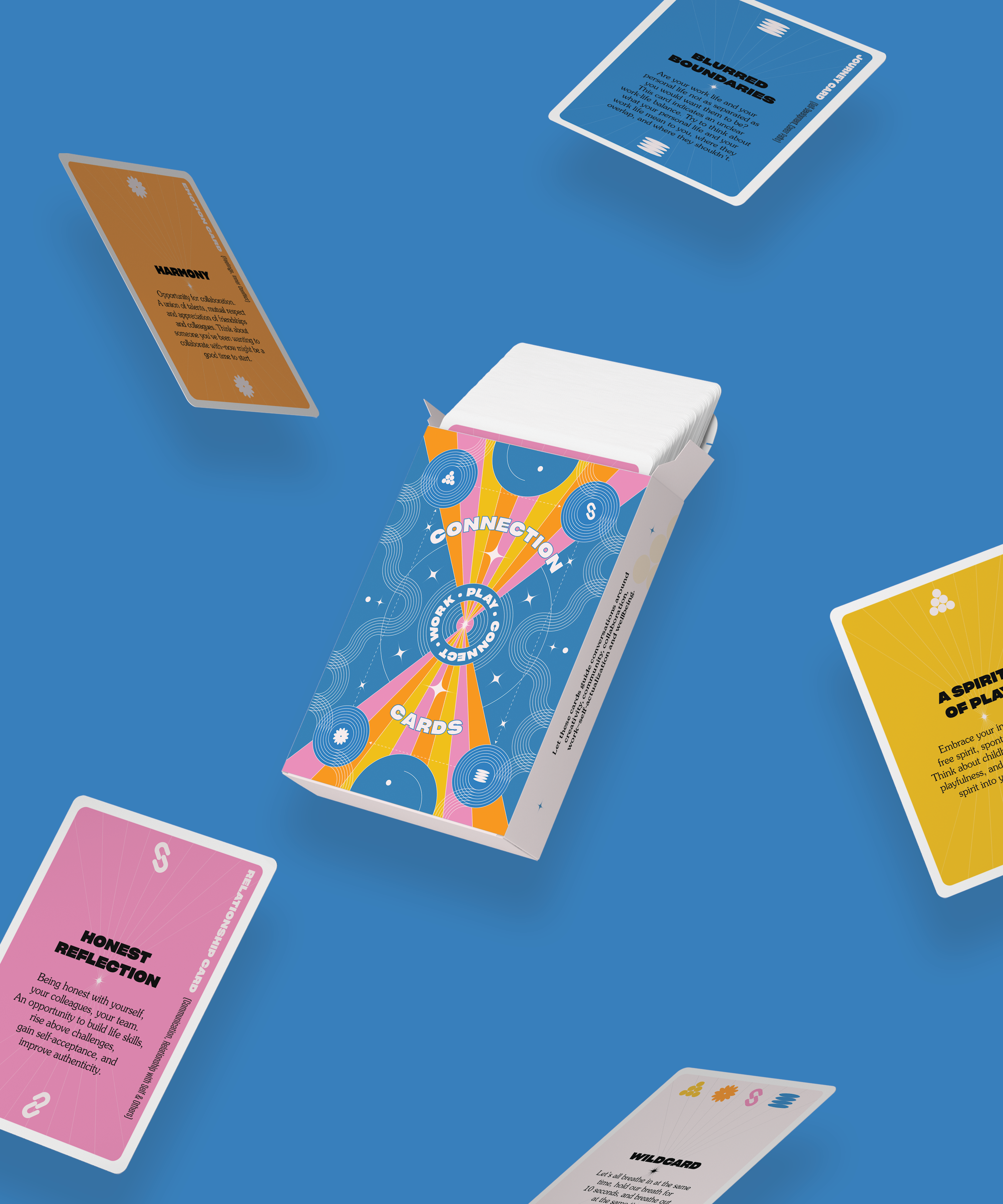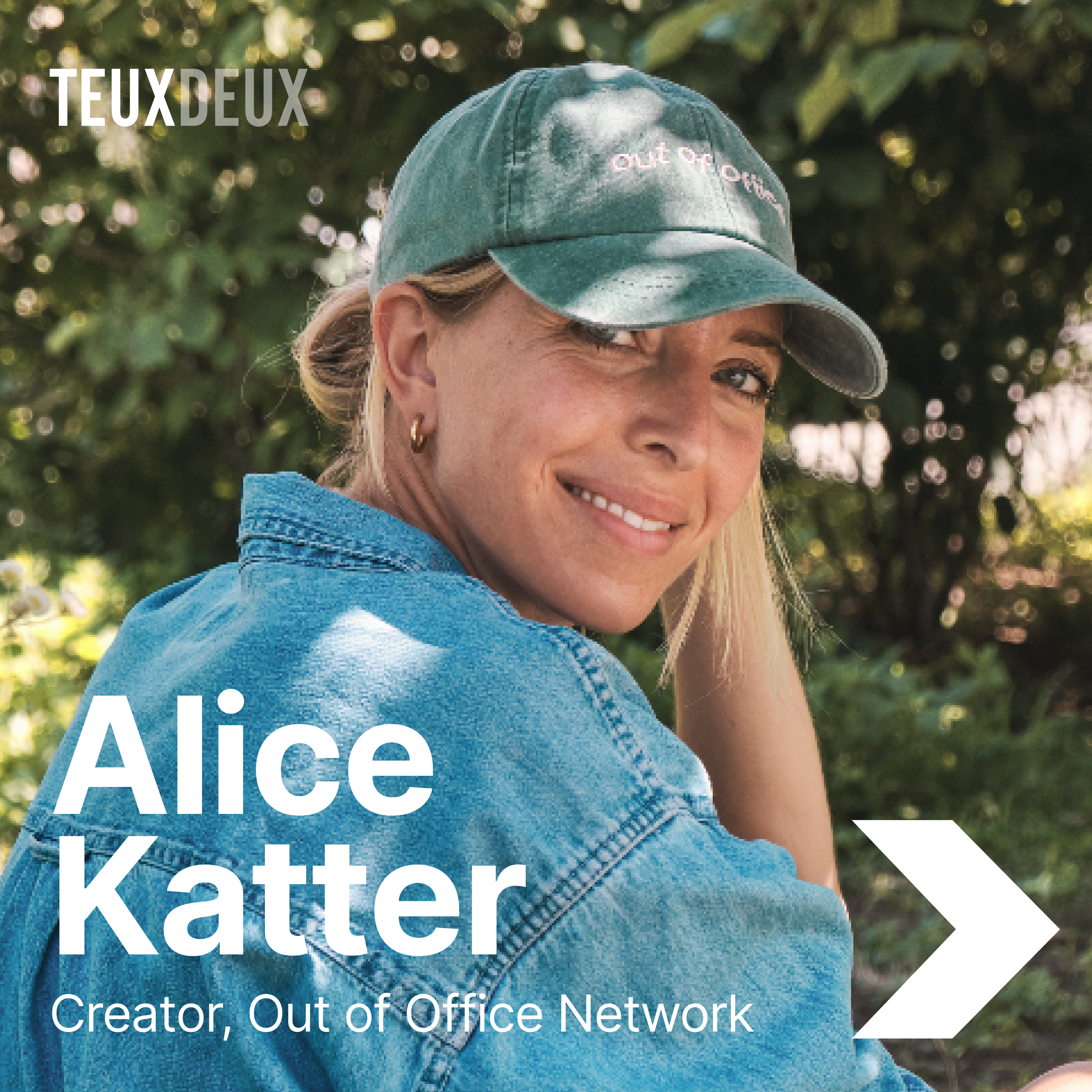Alice Katter is a culture & community strategist and the creator of Out of Office Network, a community-driven research and design lab focused on the interplay between work and life. Her work and writing explores the ways in which individuals and organizations can foster creativity and become more sustainable. She's led efforts at companies like Dropbox and WorkingNotWorking to build community and connection across teams and improve collaboration, particularly in the face of remote work as our new reality.
We sat down with Alice to talk about how she came into this kind of work and why she's so passionate about life-work balance. Listen to the episode or check out some highlights below:
Can you tell me a little bit about Out of Office Network and the work that you do?
Out of Office Network is a life-centered research and design lab. My focus is now really on exploring what the interplay between how we work and how we live is. When we look at well-being and when we look at the different pillars of our lives, I think it's always important to see them as being in balance with each other.
If we are over-investing into one area of life, then it's very likely that we're getting burned out in that area. So my approach is really looking at what these different pillars do, how they intersect and how we can actually bring a spirit of playfulness into our work and also take this approach to living more creatively in general. I believe that if we live a more creative life, that will feel more regenerative and feel more sustainable in the long run.
So that's what I'm researching with Out of Office Network, but also bringing into my client work where I do look more specifically at how we can build a culture of well-being and a culture that fosters belonging, creativity, and joy in workplaces.
In another interview, you talk about encountering the American perspective on "Workism" for the first time. How do you define it and how did it contrast from some of the other places you've worked?
I think it was an article in The Atlantic where I read the term for the first time and the article spoke about how "Workism" became this religion for Americans, and that it was very different to, or the current state of work is actually very different to how a lot of economists predicted the state of work to be.
In that interview they talked about how in the 21st century, we're only going to have 15 hour work-weeks, whereas now there's people having 15 hour workdays. So it's obviously something that didn't really happen. At that time, people were also saying the focus of our lives would be around leisure time and our challenge will be to figure out how we spend our leisure time because we'll have so much because everything will be automated. But yeah, things are still being automated and actually even more with AI really taking a driver's seat right now.
To me, that became more and more clear as I sort of stepped into the American work market as well. I also encountered, for instance, terms like, "unplugged" PTO and I would be like, okay, is there a "plugged" and an "unplugged" PTO? Is that something we need to point out because it's not normal?
I'm from Austria. I've also lived in London and have worked in different agencies there and I've just seen that to be a really different approach. In Europe, work didn't take over our entire lives; it was one component and it was one part of our lives, but definitely not the biggest one.

How did the idea for Out of Office Network come about?
The idea actually came to me in Cape Town. I was on a hike and I was just like, okay, I want to create more awareness for a different way of working and living that I had experienced at that time. So it started as creating guides for work and play in different cities.
Then moving to the US, it actually turned into more of a thought platform, and education around different ways of living and working because I saw that American work culture is just a whole different story, and I wanted to give a different perspective, a perspective that I personally observed, and share that and bring in different ways for people to actually integrate that into their lives as well.
It was, and still is, a playground and research lab now for me to explore different topics that I'm curious about or observing in the world and while doing that, it often leads to a conversation with a company that then turns into work as well. So, they really nurture each other because the topics that I'm writing about with Out of Office Network are often touching on something that corporates can also resonate with. Sometimes it leads to work and sometimes it's purely for me to just explore.
That's why I also want to shift it more into a community-powered research and design lab. So it's a community of people who are all work-life optimists and just want to challenge the status quo of work.
Are there common issues that you see, and maybe I'll limit this to American companies, that you see them struggling with?
Yeah, there's definitely a couple of patterns that are emerging, or that have been emerging. I think a lot of people feel depleted, their creative energy feels depleted. They don't really feel motivated. There's also the movements related to it, like Quiet Quitting, the Great Resignation, right?
A lot of people just don't feel engaged with their work anymore because they feel like a small number somewhere in the organization, that's not really taken care of, or there's just too much on their plate. Especially now, with the tech industry really suffering, another big challenge is the work doesn't really get less. In terms of resources, it's really hard to make sure people don't have too much on their plates if there's fewer people in the organization.
Another challenge I've been seeing a lot over the last few years is working in silos. With remote work, it takes more attention to actually have people talk to each other. That's a challenge that I'm seeing, but then also people not really being able to bring their whole selves, or different parts of themselves, to work and feeling disconnected. Not really feeling a sense of belonging.
The other thing is just trying to figure out how work, in general, can be more sustainable; how work can actually feel more joyful and feel more playful. Especially recently, it often feels very heavy. I feel like there's a certain lightness and joyfulness and creative approach to work missing quite often.

How do you protect yourself from burning out?
I really like to have non-linear work days and just break up my day in different ways. I'm actually not really into working from home. I love working from cafes and different co-working spaces where I'm surrounded by people, or meeting a friend to work from their place, but not necessarily just sitting at my desk at home alone all day.
For me, that's a way to break it up. I feel much more inspired and you get so many different inputs and you just see or even hear things that people talk about, which might really change your perspective.
I think one way of not burning out is actually having fun at work and making work feel more like play and doing different rituals that bring the team together in more meaningful ways. For instance, I designed corporate tarot cards with Dropbox, which is all about bringing a sense of joy and magic into our work days and opening up different conversations that you might not have by jumping onto a Zoom call. And with that decreasing the risk of burning out because it's fun doing things together and it's fun to explore and have different conversations and go down different rabbit holes.
Where would you like to see Out of Office Network go in the next several years?
I would love for it to become this place where people who are really interested and curious about shifting how we live and work, come together. Becoming a co-creation platform where people can bring in ideas and find collaborators.
And just, yeah, having it be a space where people can explore play, that helps them shift their perspective, helps them get unstuck, and bring practices into their own teams as well.
And with that, hopefully be a part, a small part, of making and scaling that impact in the world to create a more regenerative future of work where people feel more nourished and playful and feel like they can live a better life.
Follow Out of Office Network on Instagram @outofoffice.network or visit the site at getoutofoffice.network
